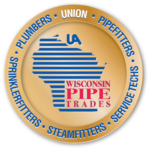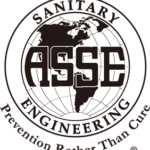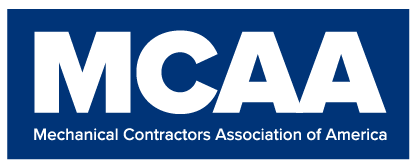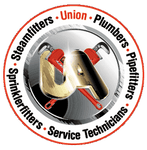Excerpted from: The UA's Guidelines to Protect Workers Related to Coronavirus (COVID-19) and Other Potential Infectious Materials (OPIM) in Plumbing and HVAC Systems to provide guidance to protect the health of workers performing work on plumbing and HVAC
systems.

PPE for DRAIN & SEWAGE WORK
Mechanical tradespeople working on sanitary drain and sewer systems should be provided & trained on PPE as well as given access to handwashing facilities.
The following PPE is recommended for plumbing professionals handling human waste or sewage:
- Safety Goggles
- Splash-Proof Face Shield
- N95 NIOSH-Approved Face Mask
- Liquid-Repellant Coveralls
- Rubber Outer Gloves
- Nitrile Inner Gloves
- Rubber Boots
More info on use cases and additional best practice recommendations can be found in the UA's Guide.
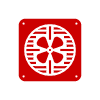
PPE for VENTING & EXHAUST WORK
Mechanical tradespeople working near plumbing vents and rooftop HVAC equipment, specifically exhaust fans, should be provided & trained on PPE as well as given access to handwashing facilities.
The following PPE is recommended for HVAC professionals working near plumbing vents and rooftop HVAC equipment, specifically exhaust fans:
- Safety Glasses with Face Shield
- N95 NIOSH-Approved Face Mask
- OR a Half-Face Respirator with HEPA Filter
- Protective Suit / Coveralls
- Cut-Resistant Outer Gloves
- Nitrile Inner Gloves >6mil Thick
- Disposable Booties
More info on use cases and additional best practice recommendations can be found in the UA's Guide.
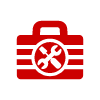
KEEPING TOOLS FREE OF COVID-19
Clean work areas and tools are imperative to stop the spread of viruses as research suggests the virus can live up to 72 hours on hard, shiny surfaces.
To clean your tools, dip a cloth into your cleaning solution, wring it out, and wipe down your tools being careful not to let water drip inside any cavities.
Suggested cleaning solutions:
- Agents effective against viral pathogens on The EPA's List N
- A diluted bleach solution. Tools should be cleaned with a 1:10 ratio of bleach to water and clothes should be cleaned with a 1:100 ratio of bleach to water.
- Hot, soapy water
Additional tips on cleaning your tools can be found here.
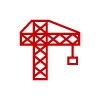
SPECIALTY JOB SITES & BEYOND
If working in a healthcare facility, the
Infectious Control Risk Assessment (ICRA) Program for the facility must be followed regarding anterooms (waiting rooms & vestibules), wearing and removal of PPE, and cleaning of tools.
When working on energized electrical conductors or circuit parts, make sure you are protected first from arc flash and electrical shock hazards by complying with NFPA 70E - 2018.
Precautions don't stop once you leave your job site, either. Remember that the virus could also be lingering on surfaces in other work areas.
The Office: Door handles, phones, chair arms, desks, keyboards, pens & pencils and anything else that more than one person touches.
The Work Truck: Steering wheel, seatbelt, stick shift, door handles (inside and out), dashboard dials, and keys are all surfaces where the Covid-19 virus could be present.

WHAT IF I FEEL ILL?
Most infected with COVID-19 experience mild symptoms and recover. However, if you feel anything less than 100%, you should stay home, document the illness/exposure, contact your supervisor and seek assistance from your medical provider.
This is especially true if you have diabetes, lung disease, heart disease, a weakened immune system or have come into contact with someone that has contracted Covid-19.
The most common symptoms are:
- Fever
- Cough
- Shortness of Breath
The most up-to-date information can be found on the CDC's website.

ADDITIONAL TRAINING FOR PROS
It is recommended that plumbing workers be trained and certified to the ASSE Series 12000. ASSE International’s Series 12000 Standard, Professional Qualifications Standard for Infection Control Risk Assessment for All Building Systems, is a standard that sets minimum criteria for the training and certification of pipe trades craftspeople on how to safely work in an environment with the potentially deadly diseases that may be present within worksites. (IAMPO, 3/12/2020)
ASSE International is making the ASSE Series 12000 Standard available for free while the pandemic remains ongoing.
Access the free Series 12000 Standard training here.
Understanding Coronavirus Exposure for the Mechanical Trades
"How do mechanical tradespeople protect themselves?"
This disease is spread by close person-to-person contact. It usually occurs from a cough, sneeze, or when someone exhales releasing infected droplets. Most of these droplets fall onto nearby surfaces and objects. People catch COVID-19 by touching contaminated surfaces or objects – and then touching their eyes, nose or mouth.
Knowing this, plumbers and HVAC service technicians working on sanitary drain and vent systems can protect themselves by wearing personal protective equipment (PPE) including a full face shield worn over safety goggles, impermeable gloves, and protective clothing. We recommend this because of the potential to come into contact with water and aerosols that contain the coronavirus when working on sanitary systems or sewers.
"Can the virus be spread in the water supply or sewage?"
According to the CDC, the SARS-CoV-2 virus has not been detected in drinking water. Conventional water treatment methods that use filtration and disinfection should remove or inactivate the SARS-CoV-2 virus that causes COVID-19.
According to the CDC, the virus can survive in human feces. How long it will survive and how contagious it remains is unclear. The Chinese government identified an outbreak in a sanitary drain and vent system in Hong Kong. The Hong Kong outbreak took place in a 30-story high-rise building. The sanitary drain and vent systems were “altered” which resulted in open vent connections within the building.
For as long as the pandemic is still active, it should be assumed by anyone working on a sanitary drainage system that the virus is present.
Do's & Don'ts of Pipetrades During a Pandemic
DO
- Follow all OSHA Standard 29 CFR 1926, Safety and Health Regulations for Construction
- Clean your tools
- Cover open wounds
- Wash your hands, arms & face - in that order - with hot, soapy water for 20 seconds
- Before eating
- Before AND after using the toilet
- Immediately after working on sanitary or exhaust systems
- Immediately after removing PPE
- After cleaning your tools
- Sneeze & cough into a tissue or your elbow
DON'T
- Touch your mouth, nose, eyes, face or open wounds with unwashed hands
- Smoke, chew gum or dip tobacco (or otherwise put items in to or take items out of your mouth) while working
- Report to work if you are ill
- Stand closer than 6 feet to another worker on the job site
- Eat lunch near the worksite
- Share your tools
- Stay with a contractor that doesn't put you & your family's health and safety first
We're Still Working!
Pipe Trades Professionals are Needed All Across Wisconsin.
